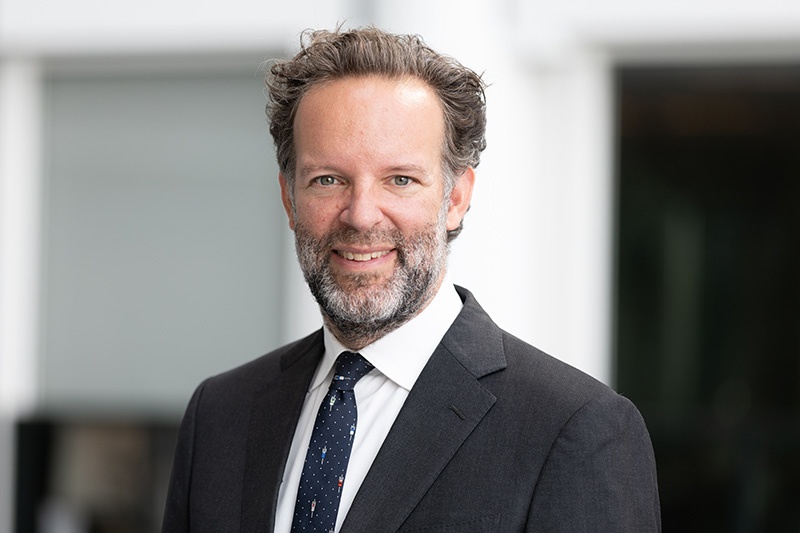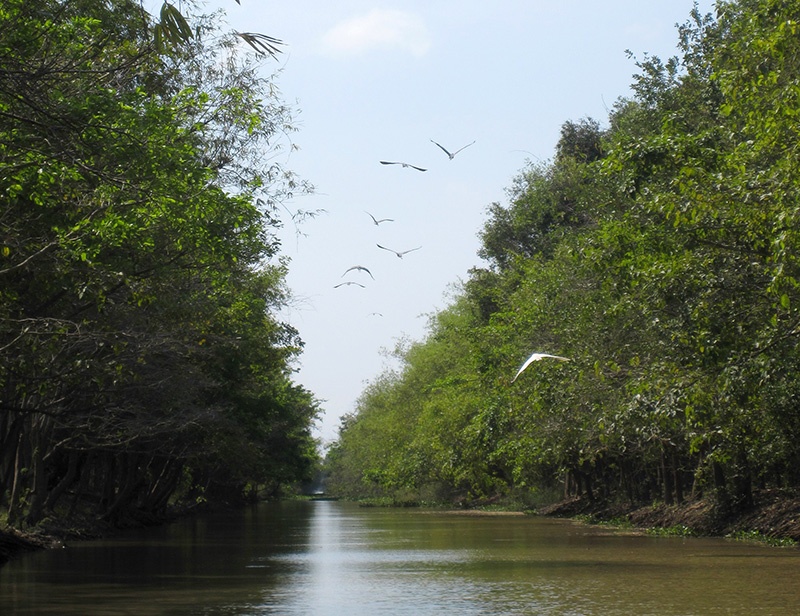Mekong Delta development with reference from the Dutch delta
 |
| Daniel Stork - Consul general of the Netherlands in Ho Chi Minh City |
The Netherlands has developed long-term plans and, together, knowledge centres, businesses, and the government are actively reshaping the delta into a safe and sustainable habitat for the next centuries.
This often means hard choices, sometimes giving up pure short-term economic profits to make more sustainable choices and economically sound long-term decisions.
These decisions are not always popular and need to be done in joint discussion with all parties involved.
The Netherlands has made the shift from mass production, as the second-largest agricultural exporter in the world, to high-tech and sustainable production. Also, sometimes the precious space in our densely populated country is given back to nature, as with the river beddings, to allow controlled flooding. This has already paid off as seen in the recent flooding in the Netherlands,
Belgium, and Germany where the damage in the Netherlands was limited.
The Vietnamese Mekong Delta is the food basket for the country, and is known for its intensive rice production with 2-3 crops a year.
Today, the region faces challenges including land subsidence and salinisation due to climate change effects and socioeconomic developments.
To have a sustainable delta, the long-term solution is clearly the replacement of intensive rice production with vegetables and fruits, focusing on the quality of crops rather than on quantity, reducing water pollution, groundwater extraction and sand mining, and investing in protection from floods and erosion.
 |
| Mekong Delta development with reference from the Dutch delta |
The Mekong Delta business platform
The Netherlands has been Vietnam’s leading partner in a joint movement towards the realisation of a sustainable and climate-resilient Mekong Delta, both in the public and private sectors.
The longstanding partnership has been solidified by various agreements to exchange knowledge and experience, with a specific focus on the Mekong Delta. Over the years, projects have been executed, trade has increased, and Dutch businesses have settled in Vietnam and the Mekong Delta.
The increasing focus of Vietnam on the Mekong Delta Agricultural
Transformation Program has triggered Topsectors in the Netherlands to intensify cooperation with Vietnam. Via Topsectors, the Netherlands has the ambition to boost innovation and develop solutions to major societal issues in those sectors in which the Netherlands has a leading position.
Four Topsectors – horticulture and starting materials; agri and food; water and maritime; and logistics – are joining forces to mobilise Dutch knowledge and business to support agricultural transformation in the Mekong Delta.
In practical terms, the joined Topsectors, together with the Netherlands’ Ministry of Agriculture, Nature and Food Quality and the Vietnam Chamber of Commerce and Industry (VCCI) launched the Mekong Delta Business Platform (MDBP) to:
- Inform on developments in the Mekong Delta and the agricultural transformation programme to inspire businesses, knowledge centres, and others to apply their ideas and solutions in the Mekong Delta. The focus will be on sustainability, value chains, climate adaptation, and more;
- Enable sustainable business in the region by facilitating matchmaking with parties in Vietnam, in the Netherlands, or elsewhere, often by providing links to businesses, knowledge centres, or renowned governmental agencies and institutes; and
- Help overcome thresholds that could hamper initiatives (for instance partners and financing).
As of today, the platform has programmed and put into action a number of activities in cooperation with our strategic partner, the Can Tho Branch of the VCCI, to materialise the agenda.
COVID-19 impact
The devastating effect of COVID-19 has put many businesses in the Mekong Delta in a difficult situation. Many businesses have suffered big losses to survive and maintain production and business against the backdrop of tight epidemic prevention.
According to the Can Tho Branch of the VCCI, from June to the end of August 2021, nearly 90 per cent of businesses in the region stopped operating temporarily. Businesses that can maintain “three-on-site” and “four-on-the-spot” operations have only produced at 5-10 per cent capacity. When the storm gradually ceases, many businesses in the region must find a way to adapt to the new normalcy.
The COVID-19 pandemic has uncovered the failure of the take-make-waste approach in using our natural resources. The transition towards an inclusive circular economy could strengthen our path towards economic recovery and help achieve the United Nations Sustainable Development Goals (SDGs) and climate targets.
The Netherlands, with its strength and know-how, will continue providing relevant support and post-COVID-19 remedies for local businesses to build back better and become more resilient and profitable.
Amongst others, topics to be focused on include responsible business conduct for sustainable growth; designing and implementing business continuity plans and readiness for severe disruptions and crises; and business risk management with a focus on small- and medium-sized enterprises.
What the stars mean:
★ Poor ★ ★ Promising ★★★ Good ★★★★ Very good ★★★★★ Exceptional
Related Contents
Latest News
More News
- PM outlines new tasks for healthcare sector (February 25, 2026 | 16:00)
- Ho Chi Minh City launches plan for innovation and digital transformation (February 25, 2026 | 09:00)
- Vietnam sets ambitious dairy growth targets (February 24, 2026 | 18:00)
- Masan Consumer names new deputy CEO to drive foods and beverages growth (February 23, 2026 | 20:52)
- Myriad risks ahead, but ones Vietnam can confront (February 20, 2026 | 15:02)
- Vietnam making the leap into AI and semiconductors (February 20, 2026 | 09:37)
- Funding must be activated for semiconductor success (February 20, 2026 | 09:20)
- Resilience as new benchmark for smarter infrastructure (February 19, 2026 | 20:35)
- A golden time to shine within ASEAN (February 19, 2026 | 20:22)
- Vietnam’s pivotal year for advancing sustainability (February 19, 2026 | 08:44)

 Tag:
Tag:



















 Mobile Version
Mobile Version